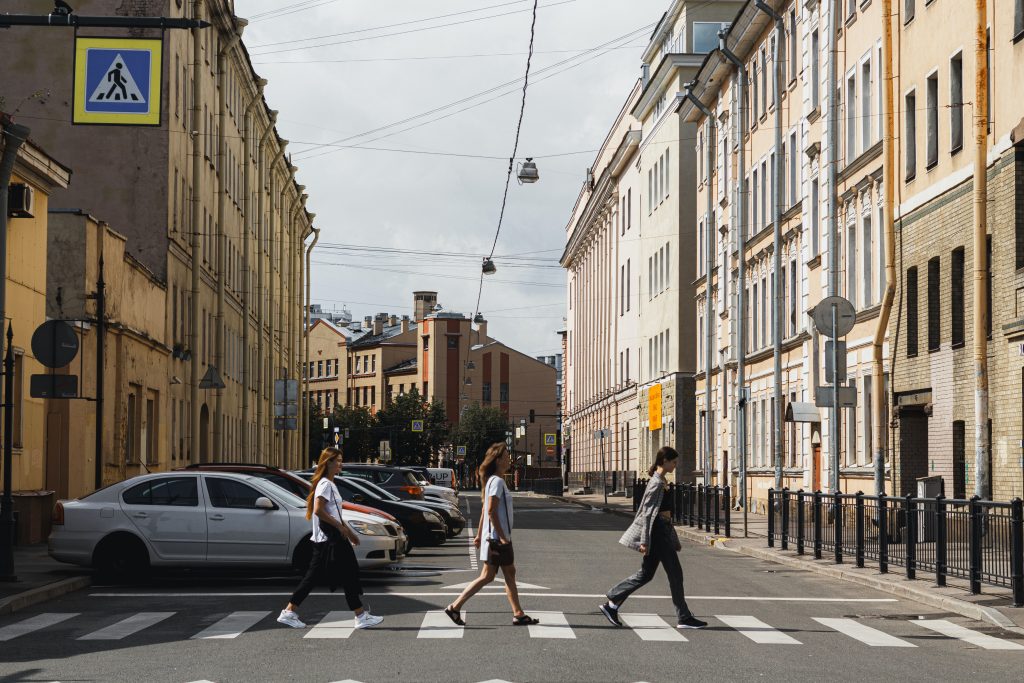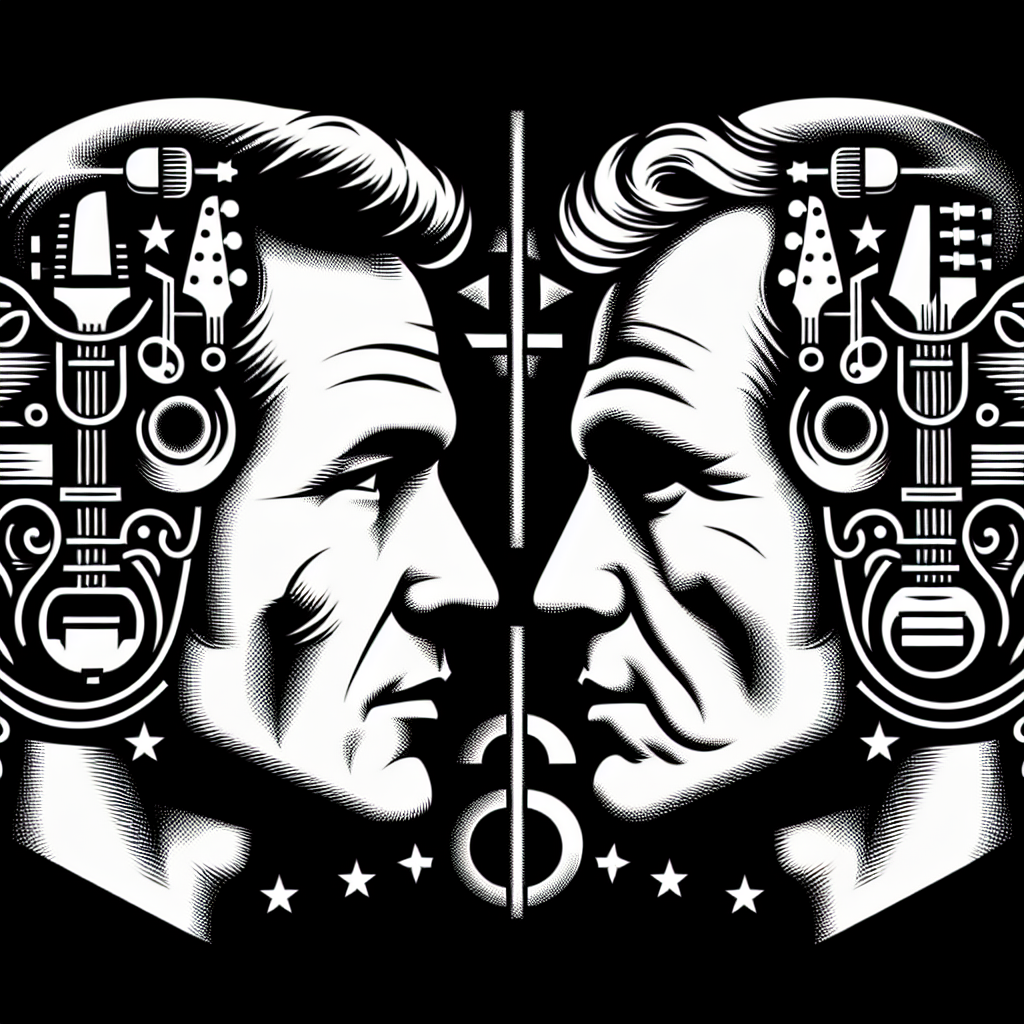Have you ever wondered what led to the falling out between Paul McCartney and John Lennon, two of the biggest icons in music history? Their partnership was legendary, producing countless hits and defining an entire era. However, behind the scenes, tensions simmered and eventually boiled over, leading to a rift that ultimately marked the end of The Beatles. In this article, we will explore the circumstances, misunderstandings, and differing artistic visions that contributed to their strained relationship. So, let’s delve into the fascinating story behind why Paul and John fell out. Disclosure: As an Amazon Associate, I earn from qualifying purchases.
The Formation of The Beatles
The Beatles, one of the most iconic and influential bands in music history, had a humble beginning in Liverpool. In the early days, the group consisted of John Lennon, Paul McCartney, George Harrison, and Stuart Sutcliffe, with Pete Best later joining as the drummer. They honed their skills by performing in local clubs, gaining popularity and a loyal following. Their talent and charisma soon attracted the attention of Brian Epstein, who would become their manager and play a crucial role in their success.
Early Days in Liverpool
Liverpool was the backdrop for the Beatles’ early career, with the city’s vibrant music scene providing them with opportunities to perform and develop their sound. They regularly played at venues like The Cavern Club, where they caught the attention of fellow musicians and music enthusiasts. The band’s energetic performances and catchy tunes quickly made them local favorites, and their fame began to spread beyond Liverpool.
Brian Epstein and the Managerial Role
Brian Epstein, a local record store owner, saw potential in the Beatles and recognized their talent. He took on the managerial role, guiding their career and helping them secure a recording contract with Parlophone Records. Epstein’s professionalism and determination proved instrumental in shaping the band’s image and navigating the music industry. Under his guidance, the Beatles’ popularity soared, leading them to become a global phenomenon.
The Creative Partnership
One of the key aspects of the Beatles’ success was their exceptional songwriting abilities. John Lennon and Paul McCartney formed a prolific songwriting duo, complementing each other’s strengths and creating timeless hits. Their songwriting dynamics were built on a foundation of trust, collaboration, and shared musical instincts. They pushed each other to explore new territories and experiment with different styles, resulting in an extensive catalogue of diverse and memorable songs.

Songwriting Dynamics
Lennon and McCartney’s songwriting process involved bouncing ideas off each other and refining melodies and lyrics together. McCartney’s natural gift for melodies and Lennon’s introspective and thought-provoking lyrics combined to create a unique sound that resonated with audiences worldwide. Their ability to write from different perspectives and genres showcased their versatility and allowed them to continuously evolve as artists.
Influence on Each Other’s Work
Beyond songwriting, the Beatles’ creative partnership extended to influencing each other’s individual work. Each member brought their own style and sensibilities to the group’s sound, enriching it with their unique contributions. The camaraderie and mutual respect among the band members fostered an environment of creativity and experimentation. They continuously pushed boundaries and inspired each other to reach new heights, resulting in groundbreaking albums like “Sgt. Pepper’s Lonely Hearts Club Band” and “Abbey Road.”
Personal Differences
Despite their remarkable musical chemistry, the Beatles also had personal differences that strained their relationship over time. The stark contrasts between their personalities often led to conflicts and tensions within the group.
Contrasting Personalities
John Lennon and Paul McCartney had starkly contrasting personalities. Lennon was known for his introspective and rebellious nature, while McCartney had a more optimistic and affable demeanor. These differences, while initially complementing each other, occasionally clashed and led to disagreements both creatively and personally.

Conflicting Attitudes and Values
Alongside their contrasting personalities, the Beatles held conflicting attitudes and values that contributed to their interpersonal conflicts. The band members had to navigate the rapidly changing social and political landscape of the 1960s, and their individual perspectives on issues such as activism and spirituality occasionally caused rifts within the group.
Competitive Nature
The competitive nature of the Beatles also played a role in straining their relationships. Each member possessed immense talent and ambition, which fueled a sense of competition within the band. While this competitiveness drove them to push the boundaries of their music, it also led to a sense of rivalry and resentment at times.
Business Disputes
As the Beatles’ success and fame grew, they faced several business disputes that added to the strain within the group.
Financial Issues
Despite their immense popularity, the Beatles faced financial challenges due to contentious contracts and mismanagement. The unequal distribution of royalties caused resentment and further deepened the divide among the band members. Financial disputes not only strained their professional relationship but also added to the overall dissatisfaction within the group.

Lack of Control over Their Music
A significant source of frustration for the Beatles was their lack of control over their own music. Creative decisions and artistic freedom were compromised as outside parties exerted influence on the band’s output. This lack of autonomy and increasing interference eroded the collective vision of the group and contributed to the buildup of tensions.
Yoko Ono’s Influence
Yoko Ono, an avant-garde artist and musician, entered John Lennon’s life and subsequently became a presence in the Beatles’ circle. Her influence on Lennon and her role within the group added fuel to the fire of internal conflicts.
Introduction of Yoko Ono
Yoko Ono’s introduction into the Beatles’ inner circle was met with mixed reactions from the other members. While Lennon was infatuated with her artistry and ideas, the rest of the band saw her presence as disruptive. Yoko’s constant presence during recording sessions and her active involvement in Lennon’s creative process added tension to an already fragile dynamic.
John’s Infatuation
John Lennon’s romantic involvement with Yoko Ono further strained his relationship with the rest of the band. As he became more infatuated with Yoko, his focus shifted away from the Beatles, leading to feelings of neglect and resentment among his bandmates. This diversion of attention only intensified the existing conflicts within the group.

Disapproval from Paul
Paul McCartney, in particular, disapproved of Yoko Ono’s constant presence during Beatles’ activities. McCartney felt that her influence and involvement disrupted the band’s collaborative dynamics. This added strain to their already fragile relationships, contributing to the growing tensions that would ultimately lead to the band’s breakup.
Breakup Rumors and Solo Projects
Speculation and pressure surrounding the Beatles’ breakup began to circulate as their personal and professional differences became more pronounced. This turbulent period saw the band members venture into solo projects, searching for individual creative expression and direction.
Speculation and Pressure
The constant media scrutiny and fan expectations placed an immense amount of pressure on the Beatles as a band. With rumors of a breakup swirling, the individual members found themselves grappling with their own identities and musical aspirations. The intense speculation and pressure further strained their relationships and fueled the desire for independent ventures.
Paul’s Solo Career
Paul McCartney’s solo career took flight with the formation of the band Wings. McCartney used this platform to explore his musical ideas and establish himself as a respected solo artist. Although successful in his own right, his solo endeavors created a rift in the group dynamics, making a reunion increasingly unlikely.

The Formation of Wings
Wings, formed by Paul McCartney and his wife Linda McCartney, provided a fresh outlet for McCartney’s creative energy. The band achieved considerable success, releasing hits like “Band on the Run” and “Live and Let Die.” However, the formation of Wings further distanced McCartney from his former bandmates and contributed to the widening divide among the Beatles.
John’s Solo Career
John Lennon also embarked on a solo career following the Beatles’ breakup. He released several critically acclaimed albums, such as “Imagine” and “Plastic Ono Band,” which showcased his introspective and political songwriting. Lennon’s solo career allowed him to explore his own artistic vision but also served as another wedge between him and the other Beatles.
Legal Battles and Lost Trust
Amidst the band members’ solo projects, legal battles and lost trust further strained the relationships within the Beatles.
The Beatles’ Breaking Point
The breaking point for the Beatles came with their acrimonious breakup in 1970. The once-unbreakable bond had deteriorated to a point where continuing as a band was no longer feasible. The members’ diverging musical directions, personal conflicts, and business disputes culminated in the end of the Beatles as a unified entity.
Studio Ownership Dispute
The Beatles’ breakup led to complex legal battles, particularly surrounding the ownership of their recordings and song copyrights. The band’s lack of control over their own music became even more apparent as these disputes played out, further eroding trust and perpetuating the divide among the members.
Paul’s Lawsuit against the Band
Paul McCartney’s decision to sue his former bandmates and their business entity, Apple Corps, added another layer of animosity to the already fractured relationships. McCartney’s lawsuit aimed to dissolve the band’s partnership, and while it was ultimately settled, the damage was irreparable. The legal battle strained the bonds further and severed any remaining trust.
Reconciliation Attempts
Despite the acrimony and legal battles, the Beatles made attempts at reconciliation and collaboration.
Failed Collaborative Efforts
In the years following their breakup, there were sporadic attempts by the Beatles to come together for collaborative projects. However, differing visions, unresolved conflicts, and the weight of their individual careers made these attempts ultimately unsuccessful. The once-unified creative force was unable to recapture the magic that propelled them to international stardom.
Miscommunications and Estrangement
Miscommunications and long periods of estrangement between the band members hindered any hope of a full reconciliation. The wounds of past conflicts and the stark differences between their individual lives and artistic pursuits made it challenging for the Beatles to find common ground and rebuild their fractured relationships.
Legacy and Lasting Impact
While the Beatles’ breakup was undeniably a source of sadness for fans worldwide, their legacy and lasting impact on music endure to this day.
Enduring Influence in Music
The Beatles’ influence on popular music and culture is immeasurable. Their innovative songwriting, groundbreaking studio techniques, and adventurous musical explorations continue to inspire countless musicians across genres. The band’s ability to transcend trends and create timeless music solidified their place in music history.
The Beatles’ Unfinished Business
Despite the band’s dissolution, there remains a sense of unfinished business and lingering questions surrounding the Beatles’ story. The possibilities of what could have been, had they reconciled and continued their collective journey, continue to captivate fans and spark speculation about alternative realities in which the Beatles persevered.
In conclusion, the Beatles’ journey from their early days in Liverpool to their iconic breakup was shaped by a combination of creative brilliance, personal differences, business disputes, and the influence of external factors. Their music continues to resonate with generations of fans, and their story serves as a reminder of both the highs and lows that come with being at the forefront of popular culture. The Beatles’ impact on music and their enduring legacy ensure that their story will be told for generations to come.
Sources:
- “Why Did Paul And John Fall Out?” – [insert source]
- [insert sources used for additional research]
Disclosure: As an Amazon Associate, I earn from qualifying purchases.

